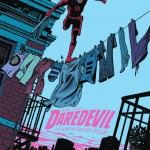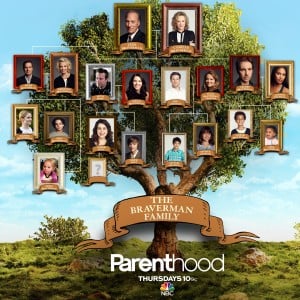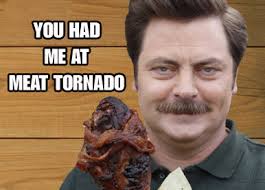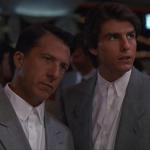From Geek Goes Rogue TV Editor Zach W. Lorton, who can’t get enough of these plantain chips…
Mad Men gave hipsters something to dress like at parties, and gave SNL a gem in St. Louisan Jon Hamm. The Walking Dead gave geeks and zombie lovers a great human drama in a apocalyptic setting, something that the television world has needed for a long time. Breaking Bad kind of snuck up on everyone, even though Bryan Cranston won an Emmy for his portrayal of Walter White in the show’s first season. AMC’s track record for developing great scripted drama has been paying off for the network.
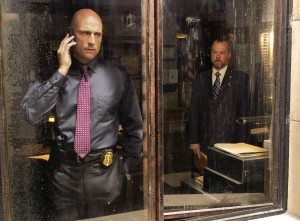 Recently, riding on the coattails of the final episodes of Breaking Bad, AMC premiered their newest drama, Low Winter Sun. I’ll admit, there are two reasons I’m watching the show:
Recently, riding on the coattails of the final episodes of Breaking Bad, AMC premiered their newest drama, Low Winter Sun. I’ll admit, there are two reasons I’m watching the show:
1. Mark Strong and David Costabile. Mark Strong is an undeniable presence on the screen, whether in movies or television. The man may look a little like Andy Garcia, but he burns up the screen like nobody’s business. David Costabile showed his range as a supporting actor on Breaking Bad in Season 3, so we know this man’s got the chops to handle a dark, gritty police drama.
2. The morality struggle. Mark Strong plays Frank Agnew, a detective with the Detroit Police Department (so already, you know it’s not gonna be all sunshine and roses) who tries to maintain a sense of justice in ways the law won’t allow. This dichotomy of a man of the law breaking the law in order to uphold it is given light in a speech by Lennie James’ character, Joe, less than 90 seconds into the pilot episode:
Folks talk about morality like it’s black and white. Or maybe they think they’re smarter, or they’re at a cocktail party acting all pretentious, and then they say it’s gray. But do you know what it really is? It’s a damn strobe. Flashing back and forth and back and forth all the time. So all we can do … all we can do is try to figure out how to see straight enough to keep from getting our heads bashed in.
That’s a pretty accurate description of the way a lot of people live their lives. In Low Winter Sun, Joe uses it to justify helping Agnew murder a fellow cop, Brendan McCann, who has an evil streak. In Agnew’s mind, black and white definitely exist, but the lines are blurred. The disparity between good and evil doesn’t exactly match up with the letter of the law, and people who do evil aren’t always punished in the ways they should be. Agnew is willing to turn a deaf ear to the possible consequences of his actions in order to rid the world of an evil he considers greater than the act it will require to vanquish it. Still, he recognizes the gravity of the decision he makes, taking swigs of liquor before committing the act, remarking, “I’m not drunk enough.”
David Costablie plays Internal Affairs agent Simon Boyd, a perfectly calm pragmatist who suspects everything. Every action, every motive, every conicidence is suspect — the mark of a man who lives and dies by the details. In the pilot, Costabile plays Boyd with a confident quiet, avoiding the cliches we often find in cop dramas. Upon the realization that Internal Affairs had been investigating McCann, Agnew becomes visibly agitated, and his behaviour does not go unnoticed by Officer Caliendo, played by Pennie Marie-Hawkins.
Detectives are a seemingly steady and familiar bunch, the types of whom we have seen in television for decades. From Dragnet to Columbo, from Monk to Hill Street Blues, from Diagnosis: Murder to Castle, we have seen nearly all the possible iterations of TV detectives — that is to say, we have seen almost the same kind of detective. The formula always varies in some ways, but the aspect of vengeance for the sake of eradicating evil is one that most detective shows don’t develop. Because of this approach, this slow burn storytelling, Low Winter Sun achieves the drawing power that many typical detective shows don’t. Namely, the main character is trying to pull off the perfect crime, and in a blessedly wonderful twist of irony, Agnew is placed as lead investigator in the death of the cop whose life he ended.
Nothing about this show is sensationalized. There are no grand moments that serve as tentpoles to generate internet buzz, no quote-worthy sections of dialogue to fawn over (unless you count the opening conversation between Agnew and Joe), and no powerful engine propelling the story down a non-stop path of action and tension. The story is slowly paced with deliberate planning, and it will take patience and dedication to see the thing through to its likely dark conclusion.
I try to find parallels with faith in everything I watch. What makes me, as a Christian, drawn to a show like this? Why would it matter if it made a stir with me? I’ve thought about it, and I can see two things at work here: darkness and light. This show is dark. The tone, the pacing, the attitude of many of the characters — it’s dark, bleak. Everyone has an agenda, and everyone has their particular point of view. Corruption exists, seedy characters kill without much thought, and it appears there’s no real hope of a light shining in the darkness except for Officer Caliendo. But even her potential for light is subdued by the overall tone of the series.
I think Micah 7:9 sums it up…
Because I have sinned against him, I will bear the Lord’s wrath, until he pleads my case and establishes my right. He will bring me out into the light; I will see His righteousness.
That passage doesn’t say that God will make everything okay. It simply says that those who act in darkness will be brought to the light, and they will come face to face with the righteousness of God. When I think of the only possible outcome for the protagonist, I can only assume that it will not end well for Frank Agnew. He may get the justice he seeks, but the road he’s started down to get there might very well destroy him.
With Low Winter Sun‘s look at the dark side of humanity, I have a feeling that will be one of the more cerebral cop dramas that television has to offer. It may not break the bank in terms of ratings, but it is poised to light up television screens all over the place. And after watching the pilot episode, I want to see what happens — such is the power of good drama, regardless of the pace.
But then again, I’m a very patient man.
Zach W. Lorton is a media producer and professional DJ/MC by trade, and a comedian, actor, and musician by default. His debut music project is set to begin recording in 2014, and will likely take the world by storm, possibly in the form of a Sharknado.



